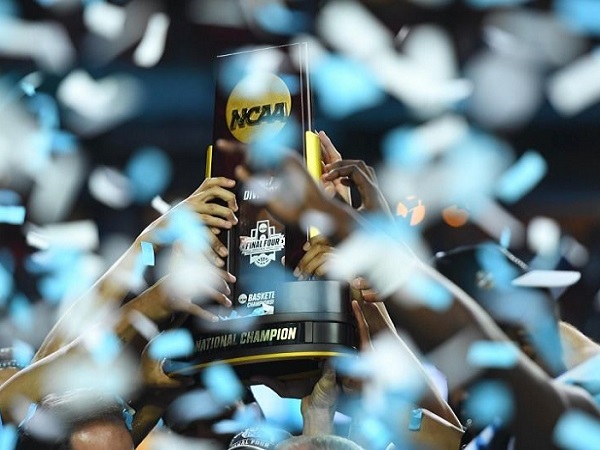Over the course of a lifetime, everyone is met with a situation of having to make a tough decision. On a day-to-day basis also, decisions are made and those decisions have consequences, good and/or bad, and indifferent.
In the past few years, the foundations of the Hollywood power structure have been shaken to due scandal and industry disruption through streaming and technology. In the media, untruthful news, partisanship, and the need to be first versus being right (or decent) has taken precedence. In sports, the Major League Baseball (MLB) Houston Astros organization admitted to cheating by stealing signs for what is now alleged to have included Microsoft Excel Worksheets labeled “Codebreaker” and the “Dark Arts” meant to decipher catcher signs for the pitcher that were relayed to the opposing team’s batter prior to the pitch being thrown. The MLB Boston Red Sox are also under investigation for their role in similar cheating allegations. Most recently, the Mookie Betts trade to the Los Angeles Dodgers along with a host of MLB-ready players, minor league prospects, and teams was held up due to an alleged delay in the unauthorized release of a player’s medical records, violating federal law, specifically the Health Insurance Portability and Accountability Act (HIPAA) and other MLB and MLB Players Association (MLBPA) regulations.
Taking each of those collectively, they represent a renewed call to wisdom and integrity in dealmaking. In the early part of the author’s law practice, colleagues would often jokingly say that when practicing law the criminal bar was civil and the civil bar was criminal. Meaning, those who practiced criminal law (defense or prosecution) in the criminal bar versus those who practiced civil law (plaintiff or defense) treated each other differently. Despite the terrible facts and circumstances of criminal cases, the attorneys were very civil with each other. On the other hand, the reputation of the civil bar was seen as “criminal” in reference to personality and decency in relationships. Now, there is of course great attorneys, media outlets, Hollywood dealmakers, and leaders who live and practice integrity, multitudes of them. The problem is that everyone needs to be reminded that winning comes at a cost when one substitutes integrity and wisdom for future relationships, morals, and ethics.
In Hollywood, as the scandals are litigated and policies change and as industry disruption drives talent, studios, and networks forward through streaming, technology, analytics, and artificial intelligence, all parties including agents, managers, and attorneys should think about how their actions affect dealmaking. There is a level of decency that should be held high when negotiating and coming to terms on a deal. Collaboration can be very useful when folks let their pride subside.
In media, the author is often reminded of the time when newspapers called themselves what they were. During President Abraham Lincoln’s Administration, the left-leaning and right-leaning newspapers called themselves either democrat or republican and people knew what they were reading. Today, in the fight for ratings, being first, and partisanship, confusion is created by the uncertainty of what is being reported. Would it not be easier to just be right and win over an audience by demonstrating consistent truthfulness.
In sports, proven and allegations of cheating in baseball has on the one hand turned eyeballs towards the sport during its offseason, but of course not for the best reason. Many players and industry insiders have called on those athletes involved to apologize and show remorse. Forgiveness of oneself begins with recognition of the wrong itself.
MLB Commissioner Manfred has called on the players and teams to not speak of past discipline and an on-going investigation. There is some hope that this policy, direct or otherwise, is lifted at Spring Training or some other time. Discussion needs to occur. History is always the judge of these situations, while fans and players will in some sense relay that sense of judgment on history in terms of their relationships with those involved (not paying to attend games, booing, or ending relationships and appreciation). Ask Pete Rose, Barry Bonds, and Roger Clemens how that feels.
Lastly, there is the lack of decorum and respect attributed to the trade(s) between the MLB Dodgers, Red Sox, Minnesota Twins, and Los Angeles Angels involving Mookie Betts and at least eleven other players (not including one future draft pick) and their families. MLBPA chief Tony Clark, Commissioner Manfred, agent Scott Boras, and Angels owner Arte Moreno all commented on the situation and nearly week long delay with disappointment related to the release of one player’s medical records and uncertainty toward future living and playing arrangements of those involved. Regardless of the reasoning for the delay (whether used as a negotiation tactic or not by the Red Sox front office) should not have occurred. As one solution, the MLB should institute penalties for leaking trades and medical records beyond legal implications along with higher penalties post-Astros/Red Sox cheating scandal. Punishment has always been a great deterrent to cheating and breaking the law.
In the end, the long-tail of relationships and character is much more meaningful than the immediate satisfaction of brief success. People often forget who won or lost something, but do remember who did something, whether terribly bad or wonderfully great and beautiful.
























